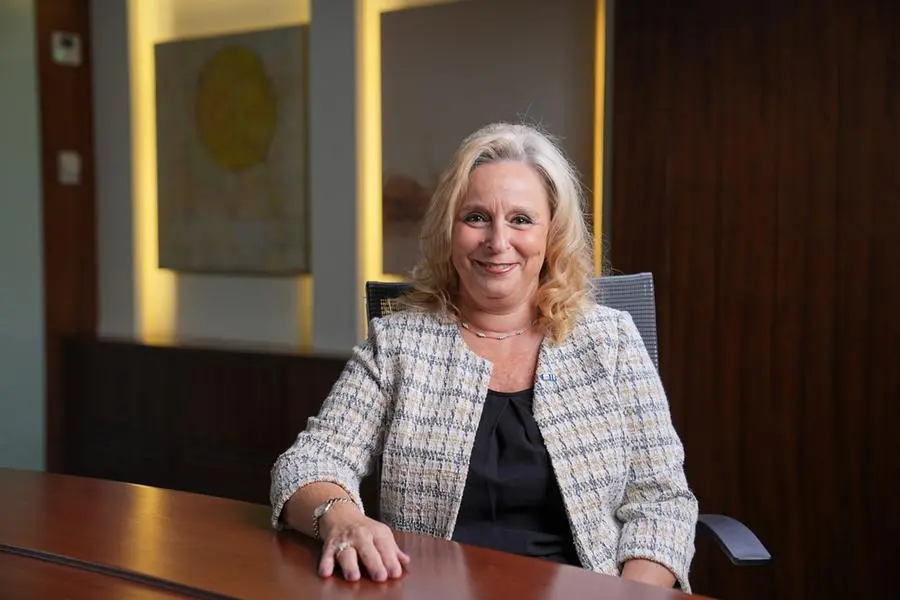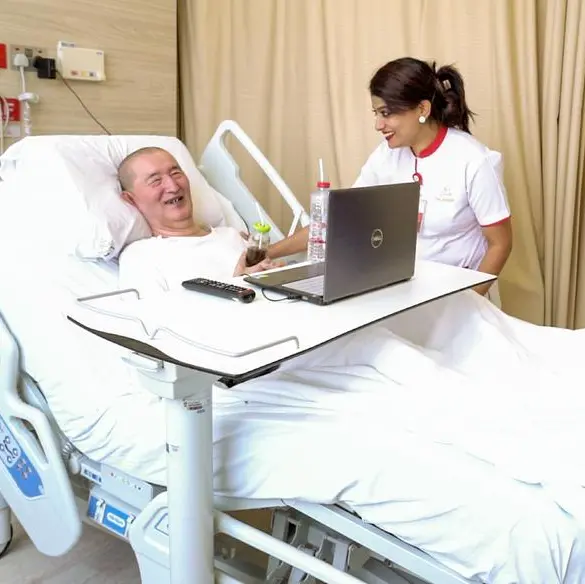PHOTO
From a modest office in Cairo, Magda Habib, a seasoned female entrepreneur who cofounded two of Egypt’s publicly traded companies, runs Dawi Clinics, a chain of 16 polyclinics.
“Our vision is to become the preferred destination for all Egyptian families for all their outpatient healthcare needs,” Habib, Dawi’s CEO, told Zawya.
In 2017, Habib and cofounder Mairose Doss, a physician by profession, launched Dawi’s first two clinics in Cairo. Since then, the business has been growing at least twofold annually in terms of revenues and number of outlets. In 2022 alone, Dawi’s network of 230 doctors served a total of 100,000 patients across at least six Egyptian provinces, according to Habib.
“Clinics are quite fragmented in Egypt. They are based on the reputation of individual doctors and lack any corporate structure. Dawi comes in with this corporate structure that ensures quality control, [auditing] and standard operating procedures,” she said.
Through its model of integrated family clinics, Dawi seeks to make up for the lack of family doctors and general practitioners who would usually serve as the point of entry to a well-structured healthcare system.
“Egyptians are not familiar with the concept of a family doctor. They go to specialists for all medical complaints, and there is no way to convince them to go to a GP or a family doctor. Plus, it’s not mandated by the government or medical insurance companies that patients must see a GP first,” explained Habib.
To adapt to this market, Dawi hires doctors that cover all specialties frequently needed by Egyptian families for their outpatient care, including internists, pediatricians, gynecologists, dermatologists, ENTs, orthopedics and dentists. With its electronic archives of patient and family histories, Dawi promises to offer “coordinated care”, a rarity in outpatient services in Egypt. The current lack of coordinated care overwhelms the medical ecosystem and burdens patients with extra spending, Habib said.
Since its inception, Dawi has raised a total of $3 million in funding from the Egyptian American Enterprise Fund. The women-led startup is expected to announce a new funding round soon, Habib said.
“It is going to be a big capital injection that will allow us to raise the number of our branches from 16 to 50 over the next three years,” Habib said (she did not disclose the amount or identify her investors).
“Our model has proven its viability. I am profitable per service and per branch. Hence, we were able to attract fresh funds,” she added.
The 55-year-old entrepreneur comes with a promising track record. For nearly 14 years, Habib had served as a member of Raya Holding’s executive board until the company went public and rose as one of the region’s leading IT companies. In 2008, she co-founded electronic payment gateway Fawry, which became Egypt’s first unicorn in 2020.
“Dawi is more or less like Fawry. You need to have a lot of points of sale where a lot of small-ticket transactions are performed. You need to be making small profits from each small ticket. Hence, the business is about efficient scaling up,” she said.
Insurance and discounts
Dawi has been targeting middle-income Egyptians who live in urban centers and can pay somewhere between EGP 220 and EGP 250 per visit, Habib explained. “In my estimate, this social segment consists of at least 20 million people,” she added. To attract more patients, Dawi has already partnered with most private insurance companies and offers discounts to non-insured families.
“I hope that what Fawry is to payment, Dawi is to healthcare. I want to be the most preferred brand to Egyptian families in all urban centers,” Habib said.
Habib believes there is still a “huge opportunity” to invest in outpatient healthcare, which accounts for nearly 22 percent of the total money spent annually on healthcare in Egypt, according to Dawi’s market surveys.
“There is a lot of interest among investors in this segment, but the penetration is difficult,” she said, “The return on investment takes time because the business model itself takes time to scale up. Plus, the legal framework in Egypt is still lagging behind and not very conducive to this type of investment.”
According to government figures, the private sector’s contribution to healthcare reached more than EGP 9 billion in the fiscal year 2018–2019, accounting for 42 percent of the total investments in the sector. Private investments are expected to increase further as the government is set to move forward with its universal healthcare insurance plan, which was first unveiled in 2018. The government has repeatedly said that the success of this scheme requires more public–private partnerships.
Under the new legislation, private medical facilities can apply to become part of the new scheme’s network of service providers. One of Dawis’ polyclinics has already joined the pilot network and another one is awaiting final approvals.
“I think it could be a breakthrough opportunity for Dawi,” Habib said. “It is a good scheme, but I am cautiously optimistic because it remains to be seen how we will be interacting with the government, how we will be receiving our financial dues, and whether we will be able to agree on fair pricing.”
(Reporting by Noha El Hennawy; Editing by Seban Scaria)





















